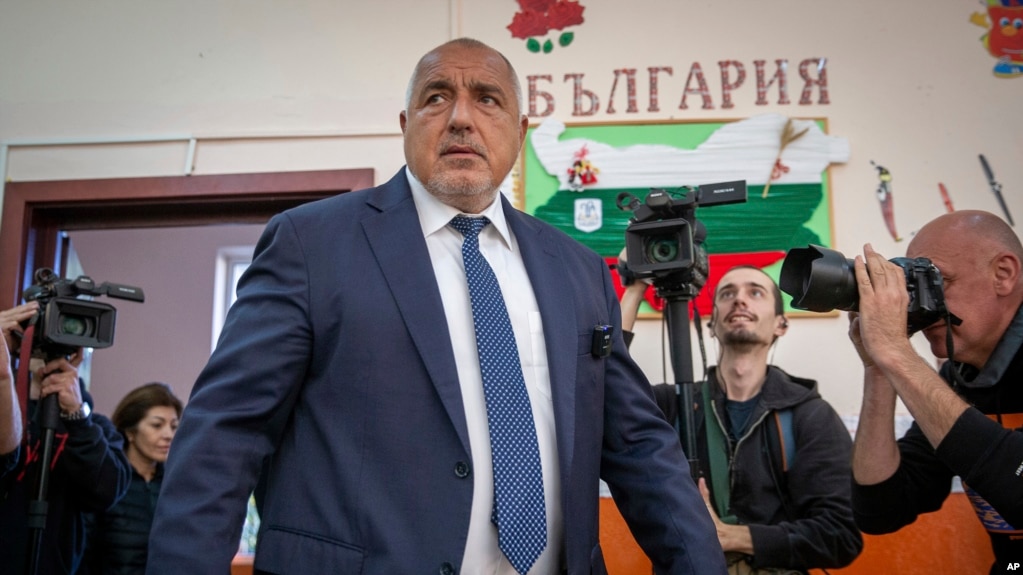By Teodora Yovcheva (University of Sofia)
Sunday’s election was the fourth parliamentary election in Bulgaria for year and a half. Bulgaria came here after the government was brought down by a vote of non confidence in June, the first successful one in Bulgaria since the democratic transition in 1990. The vote was initiated by the main opposition- GERB-SDS, but it passed with the support of DPS, Revival and “There is Such a People” (ITN) – one of the partner in the governing coalition. A few days earlier the leader of ITN declared that the party is leaving the coalition, in order to “stop the agony”.
The end of the heterogenous coalition between newly formed We Continue the Change (PP), Democratic Bulgaria (DB), Bulgarian Socialist Party (BSP) and “There is such a People” (ITN) did not come as a surprise. The coalition consisted of two newly formed parties – We Continue the Change (PP) and “There is such a People” (ITN), and historical, as well as ideologic, rivals like Democratic Bulgaria and the Socialists. Such diverse coalition came only possible in December 2021 under a growing social pressure as this was the third parliamentary election in the country for half a year. Even then, political scientists predicted that new election was imminent. The only question was when it was going to happen. The successful vote of non-confidence triggered the process and the date was set for 2nd October 2022.
The new parliament composition
The results confirmed the process of Bulgarian’s party system fragmentation and polarization. Again 7 parties enter the parliament with “Bulgarian rise” replacing ITN. As the polls predicted, GERB-SDS won the elections and the former leading partner in the previous government – PP came second. The results shows that the voters do not estimate positively when a formation systematically harm governmental formation and bring them to the polling stations frequently as ITN did not pass the threshold. At the same time the polarization is growing as the Eurosceptic and pro-Russian party Revival doubled its result. Another nationalist party “Bulgarian rise”, established by the former care-taker prime-minister Stefan Yanev, appointed by the president Rumen Radev, succeeded to pass the threshold. Not surprisingly, the Socialists came fifth. Having the fact that BSP was the main opposition in the 1990s to SDS and then to GERB in the period 2014 – 2021, can be concluded that the party is losing its leading position in the Bulgarian political life.
The good news: Bulgaria will keeps its European orientation
The good news is that the expectation for a rise of the nationalist and pro-Russian parties did not come true. Most certainly, Bulgarian strategic orientation would not be changed under the next parliamentary government, if formed. Indeed, Revival doubled its result and “Bulgarian rise” succeeded to pass the threshold, but together they had the support of around 370 000 voters. On the other side, the great majority of the voters supported parties with pro-European and pro-NATO stances. Also, the Revival’s chances for entering the government are very limited as the initiative for putting together a parliamentary majority will be in the hands of pro-European parties – GERB-SDS or PP. The chances of BV for entering a government are bigger compared to Revival’s one as BV hasn’t adopted such extreme rhetoric.
The bad news: continuing fragmentation and difficult government negotiations
As the parliament is fragmented, at least three parties for stable government would be needed. The problem is that again the parties are reluctant to cooperate with each other. The former leading partner in the previous government, PP, were adamant that they will not enter a coalition with GERB-SDS, DPS, Revival and Bulgarian rise. On the other side, the winner , GERB-SDS, adopted milder rhetoric, implying that the alliance is more prone to compromise in order government to be formed. Even so the question who the partners will be remains as GERB’s congress adopted declaration in 2017 that the party would not enter a coalition with the Socialists. DPS stands as potential partner, but at least another one is needed. Although Democratic Bulgaria seems logical partner, the alliance’s last campaigns were severely critical to GERB which decreases the chances for entering a government together with GERB and DPS. The so-called “Euro-Atlantic” coalition between GERB-SDS, PP and DB seems impossible since PP publicly rejected such scenario. Although GERB-SDS is the winner, the key for governmental formation is in the hands of Democratic Bulgaria which maintains and slightly increase its result. In this situation not the winner, but the minor parties turn out to be decisive if government will be formed.
What to expect?
If the uncooperativeness of the political parties continues, the president will be obliged to appoint another care-taker government and set a date for new elections. If this is the case, that would be the fifth care-taker government of the president Radev overall and fourth in a year and a half. Against the background of low trust in political parties, Radev with its high approval stands out. This may lead to a case where the president is seen as a pillar of stability while the parties as ones to be blamed for a spiral of elections. Radev’s political ambitions have not been secret as he
himself has hint about presidential republic. Considering it, in a long term perspective, the uncooperativeness of the parties could be harmful not only for them, but for the parliamentarism in the country.
Photo source: https://www.rferl.org/a/bulgaria-elections-russia-gas/32061541.html


